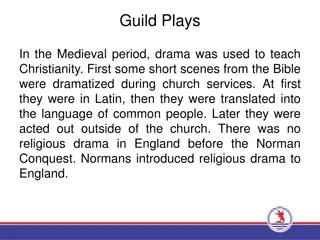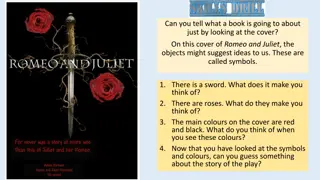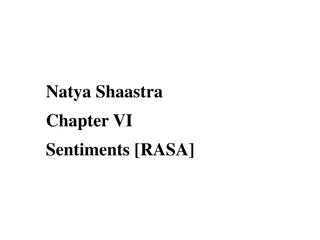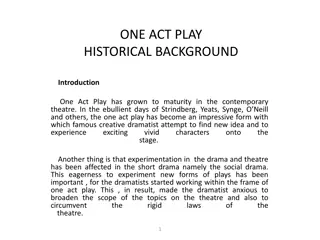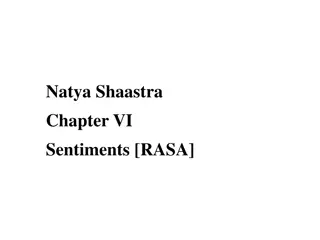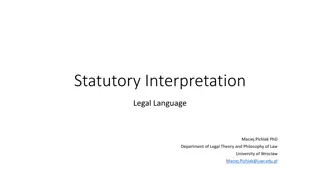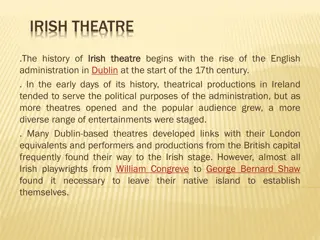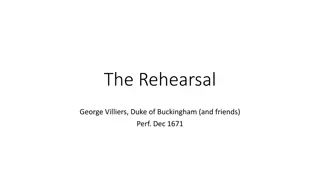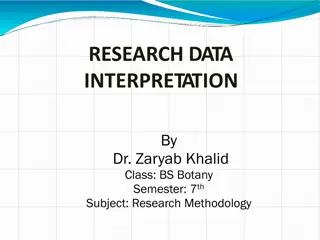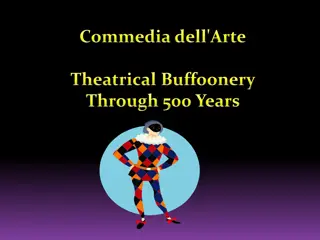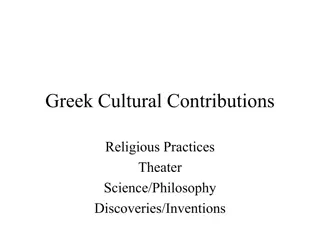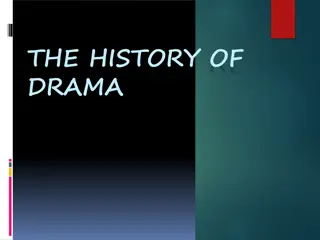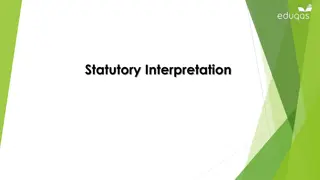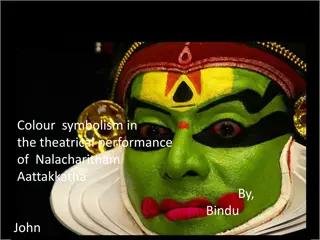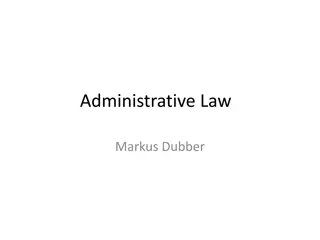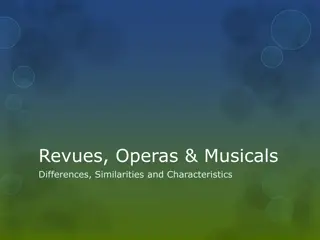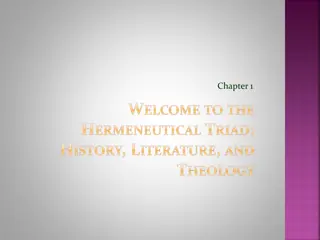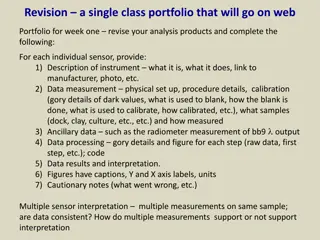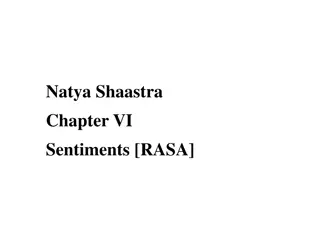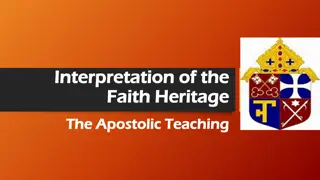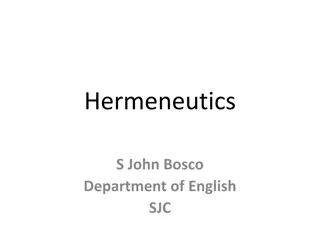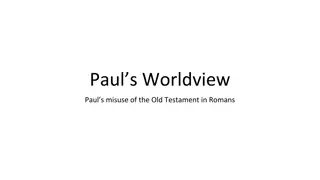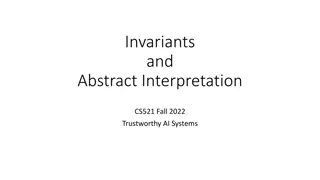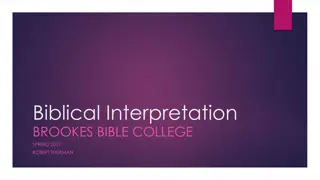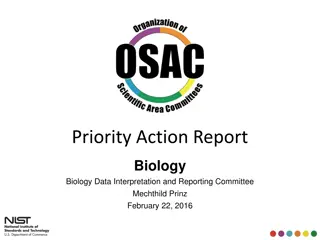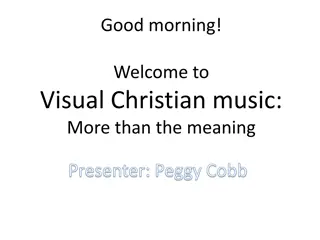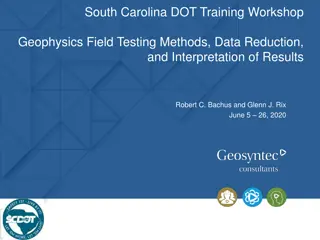Interpretation
Interpretation in research methodology involves drawing inferences from collected data, establishing continuity in research, and developing explanatory concepts for future studies. It helps researchers understand abstract principles, make predictions, and maintain research continuity. Interpretation
4 views • 5 slides
If you are looking for Venue Selection in The Lakes
If you are looking for Venue Selection in The Lakes, Dusk Till Dawn Entertainment is leading turnkey event solutions provider in Las Vegas. With almost two decades of experience in the industry, we have taken care of all the groundwork, so you don't have to. From corporate gatherings to private affa
0 views • 6 slides
Medieval Drama: Guild Plays and Moral Lessons
Learn about the evolution of medieval drama in England, from religious guild plays to morality plays and interludes. Guild plays, including mystery and miracle plays, were performed by craft guilds to teach Christianity through biblical stories. Morality plays like "Everyman" aimed to impart moral l
3 views • 9 slides
Symbols and Facts: Uncovering Shakespeare and Elizabethan Theatre
The analysis begins by exploring the symbols present on the cover of "Romeo and Juliet" such as the sword and roses. It then delves into distinguishing facts from opinions regarding Shakespeare's life, touching on key events like his baptism, marriage, and career. Additionally, it provides insights
2 views • 26 slides
Ancient Indian Theatrical Art Forms and the Theory of Rasa in Natya Shastra
The Natya Shastra, attributed to Bharata Muni, is an ancient treatise influencing Indian dance, music, and literary traditions. This comprehensive work covers various aspects of theatre, including acting, dance, music, and more. The concept of Rasa, denoting the aesthetic essence that evokes emotion
0 views • 18 slides
Evolution of One-Act Plays in Contemporary Theatre
One-Act Plays have evolved significantly in contemporary theatre, with famous dramatists like Strindberg, Yeats, and Synge experimenting with this concise form. Initially farcical, one-act plays became more focused, dealing with single dominant situations and themes like human life's complexities. T
0 views • 5 slides
Devising Drama - GCSE Knowledge Organiser
This GCSE Drama Knowledge Organiser provides guidance on devising and performing an original piece of theatre based on a stimulus. It covers how to respond to stimuli, develop ideas for theatrical performances, apply theatrical skills, analyze and evaluate work, and rehearse and refine the devised p
0 views • 10 slides
Exploring the Rasa Theory in Natya Shastra: An Ancient Guide to Indian Theatrical Arts
The Natya Shastra, attributed to Bharata Muni, is a comprehensive treatise on the arts that has shaped Indian dance, music, and literary traditions. This ancient text delves into various aspects of theatre, such as acting, dance, music, and construction, providing a foundation for Indian theatrical
4 views • 18 slides
Potential Uplift Interpretation in ERCOT Protocols
ERCOT's Potential Uplift Interpretation Protocol defines Potential Uplift as the potential uplift to the Counter-Party based on short payments. The protocol outlines calculations and clarifies language ambiguity to ensure accurate interpretation. ERCOT seeks market feedback for further clarification
1 views • 6 slides
Research Interpretation and Report Writing in Management Studies
Interpretation in research involves drawing inferences from collected facts to find broader meanings of findings. Techniques such as generalization, concept formulation, and consulting experts help ensure correct interpretation. Writing research reports is a crucial component, requiring logical anal
0 views • 25 slides
Statutory Interpretation in Legal Context
Explore the intricacies of statutory interpretation, linguistic and non-linguistic methods, and types of interpretation in legal contexts. Uncover the significance of legal reasoning, historical perspectives, and comparisons between Anglo-Saxon and Continental legal cultures. Delve into the complexi
1 views • 17 slides
History and Evolution of Irish Theatre
Irish theatre has a rich history intertwined with politics and cultural developments. From serving political purposes in the 17th century to nurturing indigenous writers and performers in the 20th century, Irish theatre has seen significant evolution. Dublin has been a key hub for theatrical product
0 views • 24 slides
The Rehearsal and The Antagonists: Satire in Restoration Drama
The Duke of Buckingham's satirical play "The Rehearsal" marked a significant shift in Restoration drama by mocking contemporary heroic plays and literary figures like John Dryden. The play, first performed in 1671, achieved popularity and influenced a tradition of dramatic burlesque on the English s
1 views • 8 slides
Research Data Interpretation
Principles and methods of data interpretation in research, transitioning from data to knowledge through analysis and inference. Importance of proper interpretation for drawing accurate conclusions and enhancing the value of research findings.
0 views • 33 slides
Evaluating the Production Elements: Set Design, Props, Costume, Lighting, Sound, Special Effects, Acting & Directing
Use the guide slides to assess various production elements including set design, props, costume, lighting, sound, special effects, acting, and directing. Explore examples from scenes like Peter Pan teaching children to fly, impactful moments, successful elements, and set design descriptions. Gain in
3 views • 7 slides
Insights into Greek Theatre's Renowned Playwrights and Dramatic Elements
Greek theatre history and key figures, including important playwrights like Aeschylus, Sophocles, and Euripides. Aristotle's theories on drama elements, Thespis' innovations, and Aristotle's Unities of Drama are explored. The impact of these elements and playwrights on ancient Greek theatre is highl
7 views • 9 slides
Insights into Italian Commedia dell'arte Traditions
A discussion on the unique characteristics of Italian commedia dell'arte, encompassing the challenges of dialects, minimalist staging with creative prop use, the art of improvisation, stock characters, and the iconic figure of Arlecchino. The performers' ability to improvise, employ comedic elements
4 views • 21 slides
Greek Cultural Contributions: From Olympics to Theater
Ancient Greek civilization made significant cultural contributions in various aspects such as religious practices, theater, and scientific discoveries. The Greeks had a rich tradition of honoring their gods through events like the Olympics and theatrical performances that continue to fascinate audie
4 views • 26 slides
Plastic Theatre in Tennessee Williams' "A Streetcar Named Desire
Tennessee Williams introduced the concept of plastic theatre in the 1940s to create a new type of theatrical experience that combined non-literary elements with the literary text. This approach aimed to enhance the themes, characters, and language of the play by integrating elements such as setting,
0 views • 9 slides
Advanced Methods of Interpretation: Hermeneutics and Structuralism Lecture at Masaryk University
Understanding interpretation in cultural sociology through hermeneutics and structuralism is explored in Lecture III by Dr. Werner Binder at Masaryk University. The lecture delves into the art of interpretation, focusing on classical hermeneutics, Friedrich Schleiermacher's romantic hermeneutics, an
1 views • 37 slides
The Evolution of Drama: A Historical Journey
Drama, originating from ancient Greece, has evolved through the centuries from being a genre of poetry to a distinct theatrical form encompassing tragedy, comedy, and more. The masks of Thalia and Melpomene symbolize the essence of comedy and tragedy, while the Great Dionysia festival in Athens hono
0 views • 41 slides
Statutory Interpretation: Rules, Approaches, and Challenges
Explore the concept of statutory interpretation, including the intention of Parliament, problems that can arise, various rules and approaches used in interpretation, aids and presumptions, criticisms, and the relationship between statutory interpretation, EU law, and precedent. The Literal Rule, a c
2 views • 26 slides
Designing a Key Scene for Stage Types: In the Round and Proscenium Arch
Exploring the design considerations for key scenes on two different stage types, In the Round and Proscenium Arch. The strengths and weaknesses for performers and audience members are analyzed, offering insights into creating engaging and effective theatrical experiences.
0 views • 27 slides
Colour Symbolism in the Theatrical Performance of Nalacharitham Aattakkatha John Bindu
Delve into the captivating world of colour symbolism in the theatrical performance of Nalacharitham Aattakkatha John Bindu, where hues convey deeper meanings and emotions. Discover how colours like Pacha, Minukku, Karuthathadi, and more play a vital role in portraying characters and themes, enhancin
0 views • 13 slides
Three Approaches to Statutory Interpretation in Administrative Law
Explore the concepts of Ordinary Meaning, Context, and Three Approaches to Statutory Interpretation in Administrative Law through insightful discussions and relevant examples. Gain a deeper understanding of legal interpretation principles and their application in legal frameworks.
1 views • 14 slides
Protecting Older Adults from Scams Through Educational Theatre
This initiative titled "Hello Granny I Need Money" aims to protect seniors from scams by false grandchildren and other fraudsters through educational theatre performances. Developed in Stuttgart, Germany, since 2011, this project has seen significant success with multiple performances and partnershi
0 views • 23 slides
A Comparative Analysis of Revues, Operas, and Musicals
Revues, operas, and musicals each exhibit unique characteristics while sharing elements of song, dance, and entertainment. Revues feature a variety of acts with no central plot, operas emphasize music and singing with distinct types like operettas and grand operas, and musicals blend music, dance, a
0 views • 21 slides
Biblical Interpretation: History, Literature, and Theology
Delve into the importance of skilled biblical interpretation, the cost of failed interpretation, and the essential characteristics of a biblical interpreter. Understand the significance of humility, the role of the Spirit, and the need for accuracy in handling the Word of God. Learn about the hermen
0 views • 23 slides
Comprehensive Sensor Portfolio Analysis for Data Interpretation
This portfolio revision focuses on providing detailed descriptions and analysis of individual sensors for data collection and interpretation. It includes information on instrument specifications, data measurement setups, ancillary data, data processing steps, results interpretation, and cautionary n
0 views • 5 slides
Rasa Theory in Indian Theatrical Arts
Explore the significance of Rasa theory in Indian theatrical arts as outlined in the Natya Shastra, an ancient treatise on performing arts. Discover how bhavas create rasas, evoking emotions in the audience and transporting them to a parallel world of wonder and reflection. Learn about the historica
0 views • 18 slides
Mrs. Simpson's English 9 Course Overview
Explore Mrs. Simpson's English 9 course covering essential topics like Coming of Age, Style Analysis, and To Kill a Mockingbird. Students will delve into writing argumentative essays, analyzing cinematic styles, and researching historical contexts. The course culminates in a study of theatrical elem
0 views • 7 slides
The Role of Dogmas and Interpretation in Faith Heritage
The interpretation of faith heritage, apostolic teaching, and the role of dogmas in the Church form a foundation of belief that guides the spiritual journey. An authentic interpretation of God's Word is entrusted to the teaching office of the Church, emphasizing the connection between divine truths,
0 views • 9 slides
Hermeneutics: Exploring Interpretation and Meaning
Hermeneutics, a vital part of theology and philosophy, delves into understanding text and interpretation. Influenced by prominent thinkers like Heidegger and Ricoeur, it emphasizes the historical encounter and personal experience within the world. The concept of hermeneutical circle and the two area
0 views • 24 slides
The Interpretation of Messiah in Paul's Worldview
Paul's interpretation of the Old Testament in Romans is discussed regarding the portrayal of Jesus as Messiah. Scholars debate the alignment between the OT and NT perspectives on Messiah, exploring hermeneutics and biblical interpretation methods. The significance of understanding the Hebrew Bible's
0 views • 27 slides
Invariants and Abstract Interpretation in Trustworthy AI Systems
Invariants and Abstract Interpretation are crucial concepts in building trustworthy AI systems. This involves defining configurations, concrete semantics, set semantics, and handling programs with loops. Monotonic functions play a vital role in ensuring consistency in the interpretation of these sys
0 views • 22 slides
Importance of Proper Hermeneutics in Biblical Interpretation
Hermeneutics, the science of biblical interpretation, is crucial in understanding and applying the Word of God accurately. It involves rules and methods to determine the intended meaning of the text. Proper hermeneutics ensures correct belief, application, and interpretation of the Bible while avoid
0 views • 170 slides
Forensic Biology Data Interpretation Committee Overview
The Biological Data Interpretation and Reporting Committee focuses on establishing best practices, guidelines, and standards for forensic DNA laboratory interpretation. Their goal is to ensure quality and consistency in the forensic community by standardizing scientifically valid methods of interpre
0 views • 26 slides
Workshop on Visual Christian Music Interpretation with Peggy Cobb
This workshop delves into the art of interpreting music visually, focusing on incorporating styles, rhythms, and presentation elements to convey the essence of a song in American Sign Language. Participants will explore modern and hymnal Christian music genres, alongside pop and country songs, to en
0 views • 15 slides
Uncovering Theatrical Depths in Hamlet's Characterization
Unveiling the theatrical intricacies within Hamlet's character, this piece delves into the subtext of his actions and the underlying motives behind his feigned madness and calculated interactions, as depicted in A. Kernan's work "The Playwright as Magician". Through a close analysis of pivotal scene
0 views • 31 slides
Geophysics Field Testing Workshop: Methods and Interpretation
South Carolina DOT Training Workshop on geophysics field testing methods, data reduction, and interpretation of results by Robert C. Bachus and Glenn J. Rix. The workshop covers suspension logging, borehole geophysical logging, geotechnical testing, and geophysical service companies such as Schlumbe
0 views • 11 slides


